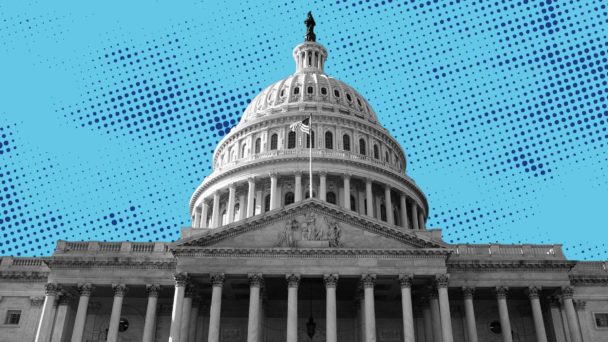When avowed segregationist James Eastland chaired the Senate Judiciary Committee from 1956 to 1978, he enforced a policy to keep would-be judges who supported integration off the bench: Nominees would not receive confirmation hearings without sign-off from both home state senators. This custom, known as “blue slips” after the pieces of paper senators return to signal their approval of a nominee, persists today. And despite Joe Biden’s presence in the White House, it allows lone legislators to exercise veto power over presidential appointments, ensuring that judges in their states remain homogenous and hostile to civil rights.
Since taking office in 2021, Biden has made strides in increasing the personal and professional diversity of the judiciary: Nearly two-thirds of confirmed judges have been women, and roughly two-thirds have been people of color. And in less than four years, Biden has put more former public defenders, civil rights attorneys, and other nonprofit lawyers on the bench than any other president. But those appointments are largely limited to states with two Democratic senators. Of the 68 district court judges he’d appointed by December 2022, 50 were in states with two Democratic senators. Only six were in states with two Republican senators. The remaining 12 were in states with one Democrat and one Republican apiece. As of January 2024, Biden had fewer than 30 red-state confirmations.
Proponents of blue slips, such as Senate Judiciary Committee Chair Dick Durbin, a Democrat, argue that they encourage “bipartisan cooperation” since, in theory, requiring the buy-in of home-state senators can foster compromise with the White House. In practice, that compromise seems to extend only in one direction. During President Donald Trump’s administration, Democrats returned 130 blue slips for district court nominees, leading to the confirmation of 84 judges. By January 2023, Republicans had returned only 12.

(Photo by MANDEL NGAN/AFP via Getty Images)
Of the 18 pending judicial nominees, five are in states with two Republican senators. The U.S. Judicial Conference recognizes four of those five empty seats as “judicial emergencies,” meaning there has been no judge for upwards of 18 months and/or there are simply too many filings for sitting judges to handle. These are crises manufactured by recalcitrant Republicans, which result in judges who are unable to do their jobs and people who are unable to get their day in court.
The knowledge that Republicans would use blue slips to block a nominee has sometimes kept Biden from making a nomination at all. Currently, there are 33 judicial vacancies without nominees. Twenty-four of those seats are district court judgeships in states with two Republican senators. Biden isn’t unique here: President Barack Obama left the White House with several vacancies in red states where he never made a nomination because he knew Republicans would say no. But Biden can’t afford that luxury—not when Donald Trump and Senate Majority Leader Mitch McConnell spent four years using the Senate like a machine to crank out lifetime appointments for fascist infants.
Perhaps the most frustrating feature of blue slips is that Democratic presidents also don’t actually need Republicans to say yes. During the Obama presidency, Republican senators maintained the blue slip tradition for both district court and appeals court judges. During the Trump presidency, however, Republican senators decided appeals court nominees could, in fact, proceed without two blue slips from home state senators. In all, 17 Trump judges were confirmed over the opposition of at least one home state senator.
Senate Democrats could get rid of blue slips anytime they wanted, just as Republicans did when convenient for them. By failing to do so, Senate Democrats are choosing a blue slip custom over the communities who are harmed by their adherence to it. Democratic presidency be damned, people in states with Republican senators are either stuck with a judge those Republican senators deemed sufficiently GOP-friendly, or no judge at all.

Two people with veto power over Biden judicial appointees in Texas (Photo by Anna Moneymaker/Getty Images)
Those states are where Democrat-appointed judges are needed the most. Take Texas and Florida: Both states have two Republican senators, both states have several judicial vacancies, and both states have higher Black populations than almost every other state in the country. That’s over three million vulnerable people whose access to justice is contingent on the whims of Ted Cruz, John Cornyn, Rick Scott, and Marco Rubio.
Hundreds of thousands of queer people live in Mississippi and Tennessee. And should they face discrimination at school or work or hospitals and try to turn to the courts, they’ll meet a judge okay’d by vocally anti-gay senators Marsha Blackburn and Cindy Hyde-Smith. Louisiana is home to two judicial emergencies, but is represented by two Republican senators; thus, any important legal questions the state’s 4.6 million residents may have will wait until Bill Cassidy and John Kennedy are good and ready. In Wisconsin, which is represented by Democrat Tammy Baldwin and Republican Ron Johnson, Johnson spent months backing the nomination of William Pocan to a vacant district court seat. When he abruptly decided not to return his blue slip after all, he effectively killed the nomination himself.
Senate Democrats’ adherence to blue slips writes off entire regions of the country and cedes power to some of those worst people in politics. Even under a Democratic president, while benches in states with a Democratic senator become more diverse and responsive to the people, benches in states with a Republican senator remain homogenous and reflective of the Republican Party. People in red states are no less deserving of a fair and functional judiciary. Durbin and company have eight more months to help build one for them.




